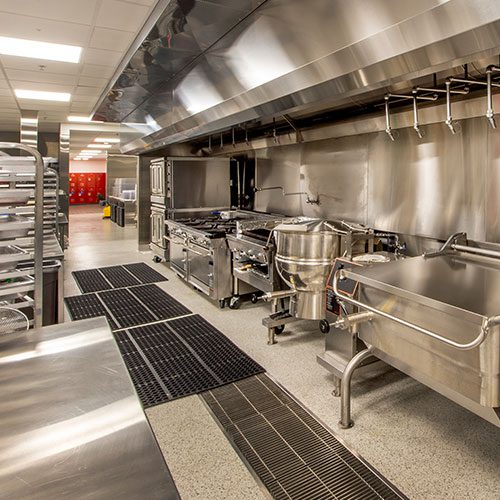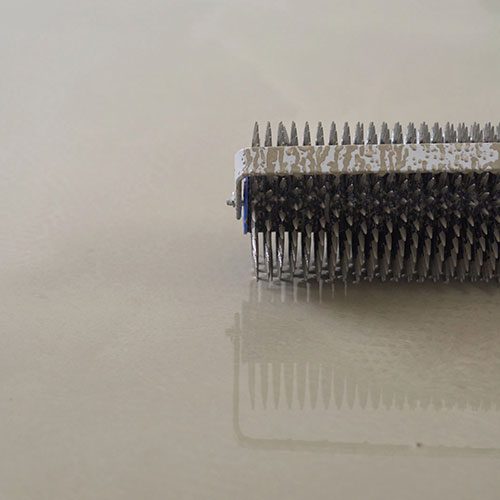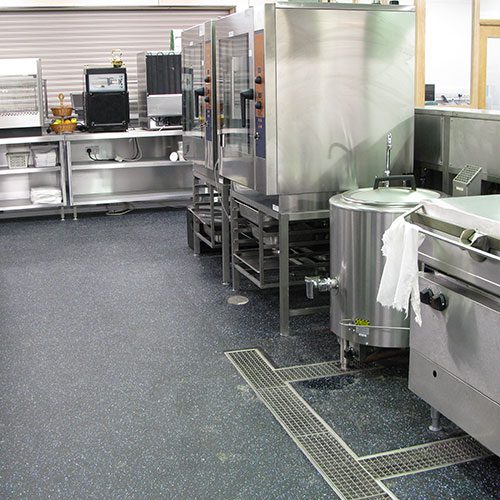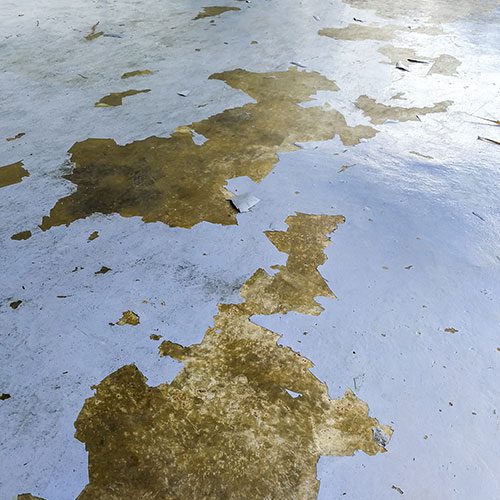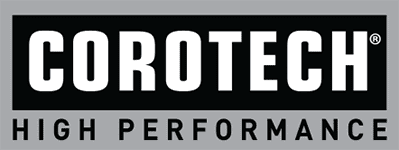Commercial Kitchen Floor Coatings
Hingham MA
Looking for help with Commercial Kitchen Floor Coatings in Hingham, MA?
Are you a Chef? Business Owner? Property Manager? Or maybe someone from Hingham just looking for more information on Commercial Kitchen Floor Coatings services?
You’re in the right place…
Problem:
We all know that commercial kitchens can be a mess. Grease, grime and spills are inevitable in the fast paced environment of any kitchen.
But some types of flooring just don’t cut it for these high traffic areas. Concrete is inexpensive, but hard to clean and prone to cracking when exposed to grease or moisture over time.
Solution:
Polyurea concrete coatings from Idea Concrete Coatings are the perfect solution for your restaurant’s floors! Our polyurea coating will protect against water damage and staining while also providing slip resistance across your flooring surface so that you can keep things running smoothly at all times!
Why Choose
Idea Concrete Coatings for Commercial Kitchen Floor Coatings Services in Hingham MA?
Because we have a reputation for quality work at a fair price. Our customer service is second to none. Our team is always responsive, courteous, friendly, and respectful.
Idea Concrete Coatings’ Commercial Kitchen Floor Coatings services have helped hundreds of Business Owners, Property Managers and other individuals in Hingham, MA and the surrounding communities. After some research, we’re confident you’ll find us to be the right Polyurea Flooring Contractor to handle your Commercial Kitchen Floor Concrete Coatings projects.
With Idea Concrete Coatings, you’ll receive:
- Quality workmanship that is guaranteed to last
- Work from professionals who are honest and hardworking
- Dependable service that is completed on time and on budget
- Financing options to help fund your concrete coating project
- Free estimates and a fully insured crew

Benefits of
Commercial Kitchen Floor Coatings:
Extremely Durable
Scratch-Resistant
Waterproof
High Gloss Finish
Fast-Curing
Easily Maintained
UV-stable / Fadeproof
Many Color Options
5X STRONGER THAN EPOXY
Tired Of Constantly Scrubbing And Cleaning Your Commercial Kitchen Floors?
Polyurea is the perfect solution. It’s an easy-to-apply, durable coating that will protect your floor from spills and stains. You can also use it in other areas of your commercial property like loading docks, walkways, and more.
It’s not just about protecting your floors from damage – polyurea also provides a beautiful finish that will make any space look better than ever before! And because it’s so easy to apply, you can have this new look in no time at all! Get started today with our free quote form or call us now. We are here to help you find the best solution for your needs.
Avoid Cracking Due To The Fluctuating Massachusetts Temperatures With Polyurea Floor Coatings
Coating your concrete with polyurea ensures that the surface of the floor will not crack or deteriorate because it’s elastic and expands when exposed to a change in temperature. This is crucial for contractors who are working on large commercial projects where an entire structure can start to break down due to choosing the wrong protective coating.
Polyurea is the coating that lasts. Studies have shown concrete’s propensity to crack when temperature changes cause it to expand and contract, paving a way for its deterioration. Polyurea expands and contracts with your flooring surface ensuring no cracks will form within the first winter of use – which can be disastrous.
OUR PROCESS
24 Hour Floor Installation
STEP
Concrete Preparation
STEP
Concrete Repairs
STEP
Base Coat Application
STEP
Spread Colored Flakes
STEP
Final Preparation
STEP
High Gloss Finish
What is Polyurea Concrete Coating?
Polyurea floor coating is the toughest and fastest-curing form of concrete protection you can buy. Once applied, it’s shiny finish will last for years without any cracking or peeling if maintained properly. It can withstand more abuse and impact than any traditional epoxy coating, offers much better protection against harmful agents like oils, chemicals, and gas, and doesn’t stain, crack, or peel. Choose from hundreds of color schemes and looks to fit the style of any room inside or outside. Polyurea commercial kitchen floors are a solid choice when considering your options to protect your kitchen floors from wear and tear. If you decide to use polyurea floor coating, your floors will look gleaming and new for many years to come, if maintained properly.
Why Choose Polyurea Floor Coating For Your Commercial Kitchen Floors
1. Polyurea Coatings Withstand Everything
These top-quality floors can withstand all kinds of harmful impacts, extreme pressure, and chemical attacks. Due to its strength and durability these are often applied in commercial or industrial facilities that require heavy duty flooring materials due to their ability with immense temperature resistance. These sustainable products contain no volatile organic compounds (VOCs), which means they’re safe from the risks associated with indoor air pollution caused by chemicals like formaldehyde.
2. Polyurea Coatings Are Tough & Fast-Curing
This Commercial Kitchen floor coating is super strong and resistant, taking only one day to install. Conveniently fast-curing in just 1-2 hours after application, this kind of surface will be ready for use in the next 24 hours! If you’re considering a professional contractor’s services, then your decision has already been made – because Idea Concrete Coatings gives you an excellent product that takes less than 1 day to install.
3. Easy To Maintain And Look Amazing
Polyurea floor coatings are beautiful, easy to clean, and a non-bubbling polymer with a crystal-clear finish. These qualities make them perfect for Commercial Kitchen concrete floors as they provide outstanding protection and prevent insects from hiding in cracks or crevices. With no place to hide, these hardy creatures will be scared off by the smooth surface of your newly coated floor which can also withstand everyday wear and tear.
4. Your Kitchen Is Safer With Polyurea
Polyurea coated floors are the safest option for any space. The coating creates a non-slip surface that is great for slippery surfaces, and it can withstand very high temperatures to provide fire retardant protection. Unlike epoxy floor coatings, polyurethane doesn’t emit harmful VOCs; they’re antibacterial and nontoxic as well!
5. Many Colors To Choose From
Commercial Kitchen floors are usually dull and gray, but now there is a lot more to offer for those who want something different. You can have decorative chips in your floor coating or you could opt for multiple colors that will make any Commercial Kitchen space unique. Whatever option you choose, it won’t matter because the options are durable and strong enough to last many years ahead!
Elias De Lana
Talk To The Owner
We understand that sometimes you just want to talk before scheduling an estimate.
We'll gladly help with any questions or concerns.
(617) 207-6300
Problems With Other Commercial Kitchen Floor Coating Solutions Like Epoxy
Not only do other coatings start to crack and flake after a handful of winters, but they don’t do well in sunny weather either! This should be an important drawback for any contractor developing buildings with stone flooring, or anyone working in areas that have many painted driveways. Even if epoxy coatings hold up to protect the surface of your floors from UV rays, it will still deteriorate over time when exposed to natural light. Your beautiful floors might take on a yellow tinge if there is too much sun exposure- which could happen anywhere without enough shade coverage during the summer months. However this can all change depending on whether you use Polyurea Concrete Coatings!
PAINTER & FLOORING CONTRACTOR
Focused on Exceeding Expectations

★★★★★
See Reviews:
Houzz

★★★★★
See Reviews:
HomeAdvisor

★★★★★
See Reviews:
Yelp!
★★★★★
See Reviews:
Facebook
Map of Hingham
Hingham Overview
|
Hingham, Massachusetts
|
|
|---|---|
|
Town
|
|

The Old Ship Church, Hingham
(Seventeenth-century English Colonial architecture) |
|

Seal
|
|
| Nickname(s):
“Bucket Town”
|
|
| Motto(s):
“History and Pride”
|
|

Location in Plymouth County in Massachusetts
|
|
| Coordinates:
42°14′N 70°53′W / 42.233°N 70.883°WCoordinates: 42°14′N 70°53′W / 42.233°N 70.883°W |
|
| Country | United States |
| State | Massachusetts |
| County | Plymouth |
| Settled | 1633 (as Bare Cove) |
| Incorporated | September 2, 1635 |
| Government | |
| • Type | Open town meeting |
| Area | |
| • Total | 26.3 sq mi (68.1 km2) |
| • Land | 22.2 sq mi (57.5 km2) |
| • Water | 4.1 sq mi (10.6 km2) |
| Elevation | 60 ft (18 m) |
| Population
(2010)
|
|
| • Total | 22,157 |
| • Density | 998/sq mi (385/km2) |
| Time zone | UTC-5 (Eastern) |
| • Summer (DST) | UTC-4 (Eastern) |
| ZIP Code |
02043
|
| Area code(s) | 339/781 |
| FIPS code | 25-30210 |
| GNIS feature ID | 0618342 |
| Website | Hingham, Massachusetts |
Hingham is a town in metropolitan Greater Boston on the South Shore of the U.S. state of Massachusetts in northern Plymouth County. At the 2010 census, the population was 22,157. Hingham is known for its colonial history and location on Boston Harbor. The town was named after Hingham, Norfolk, England, and was first settled by English colonists in 1633.
About Hingham, MA
History
The town of Hingham was dubbed “Bare Cove” by the first colonizing English in 1633, but two years later was incorporated as a town under the name “Hingham.” The land on which Hingham was settled was deeded to the English by the Wampanoag sachem Wompatuck in 1655. The town was within Suffolk County from its founding in 1643 until 1803, and Plymouth County from 1803 to the present. The eastern part of the town split off to become Cohasset in 1770. The town was named for Hingham, a village in the English county of Norfolk, East Anglia, whence most of the first colonists came, including Abraham Lincoln’s ancestor Samuel Lincoln (1622–90), his first American ancestor, who came to Massachusetts in 1637. A statue of President Lincoln adorns the area adjacent to downtown Hingham Square.
Hingham was born of religious dissent. Many of the original founders were forced to flee their native village in Norfolk with both their vicars, Rev. Peter Hobart and Rev. Robert Peck, when they fell foul of the strict doctrines of Anglican England. Peck was known for what the eminent Norfolk historian Rev. Francis Blomefield called his “violent schismatical spirit.” Peck lowered the chancel railing of the church, in accord with Puritan sentiment that the Anglican church of the day was too removed from its parishioners. He also antagonized ecclesiastical authorities with other forbidden practices.
Hobart, born in Hingham, Norfolk, in 1604 and, like Peck, a graduate of Magdalene College, Cambridge, sought shelter from the prevailing discipline of the high church among his fellow Puritans. The cost to those who emigrated was steep. They “sold their possessions for half their value,” noted a contemporary account, “and named the place of their settlement after their natal town.” (The cost to the place they left behind was also high: Hingham was forced to petition Parliament for aid, claiming that the departure of its most well-to-do citizens had left it hamstrung.)
While most of the early Hingham settlers came from Hingham and other nearby villages in East Anglia, a few Hingham settlers like Anthony Eames came from the West Country of England. The early settlers of Dorchester, Massachusetts, for instance, had come under the guidance of Rev. John White of Dorchester in Dorset, and some of them (like Eames) later moved to Hingham. Accounts from Hingham’s earliest years indicate some friction between the disparate groups, culminating in a 1645 episode involving the town’s “trainband”, when some Hingham settlers supported Eames, and others supported Bozoan Allen, a prominent early Hingham settler and Hobart ally who came from King’s Lynn in Norfolk, East Anglia. Prominent East Anglian Puritans like the Hobarts and the Cushings, for instance, were used to holding sway in matters of governance. Eventually the controversy became so heated that John Winthrop and Thomas Dudley were drawn into the fray; minister Hobart threatened to excommunicate Eames.
The bitter trainband controversy dragged on for several years, culminating in stiff fines. Eventually a weary Eames, who was in his mid-fifties when the controversy began and who had served Hingham as first militia captain, a selectman, and Deputy in the General Court, threw in the towel and moved to nearby Marshfield where he again served as Deputy and emerged as a leading citizen, despite his brush with the Hingham powers-that-be.
Although the town was incorporated in 1635, the colonists didn’t get around to negotiating purchase from the Wampanoag, the Native American tribe in the region, until three decades later. On July 4, 1665, the tribe’s chief sachem, Josiah Wompatuck, sold the township to Capt. Joshua Hobart (brother of Rev. Peter Hobart) and Ensign John Thaxter (father of Col. Samuel Thaxter), representatives of Hingham’s colonial residents. Having occupied the land for 30 years, the Englishmen presumably felt entitled to a steep discount.
The sum promised Josiah Wompatuck for the land encompassing Hingham was to be paid by two Hingham landowners: Lieut. John Smith and Deacon John Leavitt, who had been granted 12 acres (49,000 m2) on Hingham’s Turkey Hill earlier that year. Now the two men were instructed to deliver payment for their 12-acre (49,000 m2) grant to Josiah the chief Sachem. The grant to Smith and Leavitt—who together bought other large tracts from the Native Americans for themselves and their partners—was “on condition that they satisfy all the charge about the purchase of the town’s land of Josiah—Indian sagamore, both the principal purchase and all the other charge that hath been about it”. With that payment the matter was considered settled.
The third town clerk of Hingham was Daniel Cushing, who emigrated to Hingham from Hingham, Norfolk, with his father Matthew in 1638. Cushing’s meticulous records of early Hingham enabled subsequent town historians to reconstruct much of early Hingham history as well as that of the early families. Cushing was rather unusual in that he included the town’s gossip along with the more conventional formal record-keeping.
Geography
Things Near By Hingham
[rkfrt-neighborhoods title=”Neighborhoods” location=”Hingham,MA” limit=”60″ sort=”asc”]
[rkfrt-activities title=”Hingham, Massachusetts” location=”Hingham,MA” limit=”9″ sort=”asc”]


